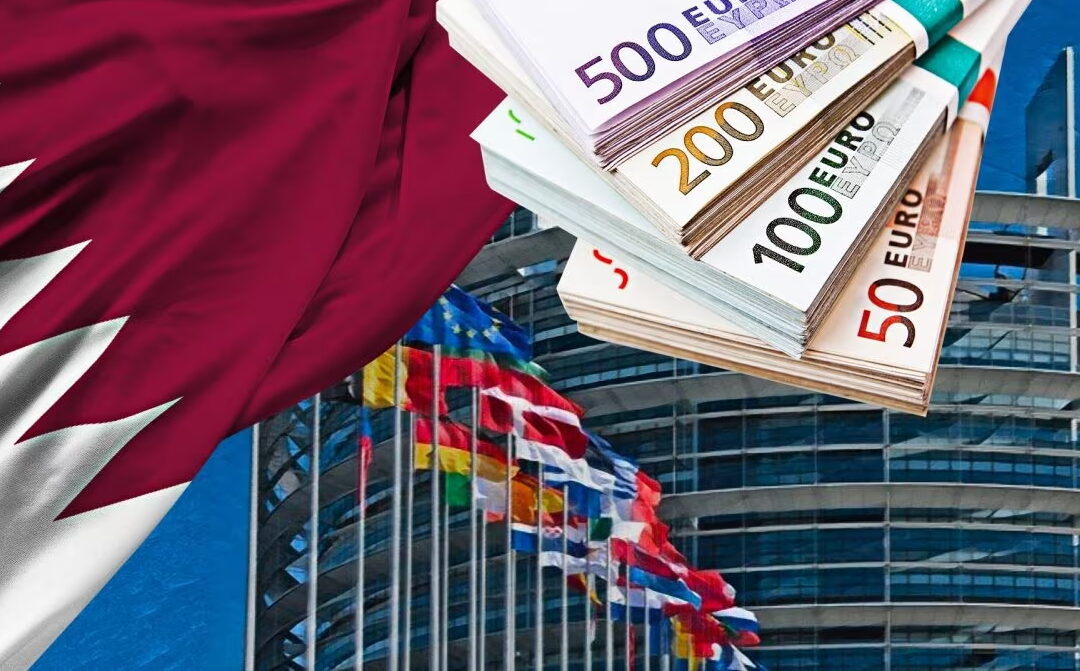The European Public Prosecutor’s Office (EPPO) has requested the waiver of parliamentary immunity of two Members of the European Parliament (MEPs) to further the ongoing Qatar-gate investigation to unmask severe allegations of corruption that have shaken up the entire European Union.
While it is likely that this investigation will uncover other sums of money and the involvement of other parties, the facts point out that the amount of 1.5 million euros recovered by the Belgian Federal Prosecutor’s Office relate to this scandal.
 Acts of active corruption and passive bribery by public officials are complex and grave criminal phenomena. While active corruption is the deliberate action of a person who promises or gives, directly or through an intermediary, an advantage of any kind whatsoever to an official, for himself or a third party, for him to act or refrain from acting in accordance with his duty or the exercise of his functions in breach of his official duties, passive bribery refers to the deliberate action of an official, who, directly or through an intermediary, requests or receives advantages of any kind
Acts of active corruption and passive bribery by public officials are complex and grave criminal phenomena. While active corruption is the deliberate action of a person who promises or gives, directly or through an intermediary, an advantage of any kind whatsoever to an official, for himself or a third party, for him to act or refrain from acting in accordance with his duty or the exercise of his functions in breach of his official duties, passive bribery refers to the deliberate action of an official, who, directly or through an intermediary, requests or receives advantages of any kind
whatsoever, for himself or a third party, or accepts a promise of such an advantage, to act or refrain from acting in accordance with his duty or the exercise of his functions in breach of his official duties.
It is commonly known that there is corruption where financial interests are involved.
However, when the amount at stake is substantial, the corrupt activities are also significant, adversely affecting several economic sectors.
The Qatar-gate investigations are proof of this phenomenon. Although there are several methods of circulating illicit money, and in some cases, these methods are highly sophisticated, the fact remains that cash is the preferred method of laundering proceeds. The costs of corruption are high: it not only negatively impacts prosperity and economic growth but also constitutes a serious threat to the rule of law, democracy, and fundamental rights.
The Qatar-gate investigation has also highlighted the abuse of non-profit organisations (NPOs). Charities and NPOs play a vital role in our society, providing resources, relief and support to communities in need and at times of crisis.
However, unfortunately, these social vehicles are being exploited as channels for corruption or as conduits for laundering proceeds of illegally obtained government funds that were not used for their intended purpose but were pocketed by corrupt government officials, abusing the legal characteristics and status of such NPOs.
Moreover, the use of other legal entities, such as trusts, further enriches the abuse of such NPOs. Finally, the locations of the supporters of these organisations, often offshore and in countries with less stringent financial transparency, pose a key challenge in identifying and prosecuting these perpetrators. For instance, a widespread laundering method uses NPOs to collect illegal proceeds disguised as donations from off-shore legal entities and injects them into the legitimate economy by channelling the funds to other NPOs, thereby effectively concealing the origin of such money.
 At the international level, the Financial Action Task Force (FATF), the intergovernmental task force combating money laundering and terrorist financing, has sounded the alarm. On 26th June 2015, it set out a comprehensive and consistent framework of measures (FATF Recommendations). It urged countries, including the European Union, to implement the framework through measures adapted to their particular circumstances to combat the abuse of NPOs in money laundering. More specifically, it required the review of laws and regulations governing NPOs to identify the best practices to prevent and combat the misuse of NPOs.
At the international level, the Financial Action Task Force (FATF), the intergovernmental task force combating money laundering and terrorist financing, has sounded the alarm. On 26th June 2015, it set out a comprehensive and consistent framework of measures (FATF Recommendations). It urged countries, including the European Union, to implement the framework through measures adapted to their particular circumstances to combat the abuse of NPOs in money laundering. More specifically, it required the review of laws and regulations governing NPOs to identify the best practices to prevent and combat the misuse of NPOs.
NPOs can be particularly vulnerable to such abuses due to their organisational characteristics, status and cross-border ties. In addition, depending on the legal form of the NPO and the country, NPOs may often be subject to little or no governmental oversight, usually less stringent transparency and financial reporting obligations, and are, therefore, often chosen by criminals to launder money. This has been exposed even in the Qatar-gate investigation, which revealed that the involved NPOs failed to comply with all or part of their transparency disclosures.
When it comes to the sources of funding for such organisations, not only should the internal governance body have an obligation report, but it should also be obliged to make the financial information, such as the amounts received and the donors, available to the public. Likewise, the final destinations of the funds collected by NPOs must also be made available to the public.
Fortarezza Antonio | Chairman of the anti-money laundering commission chartered accountants Milan
Audit Institutions Subcommittee

